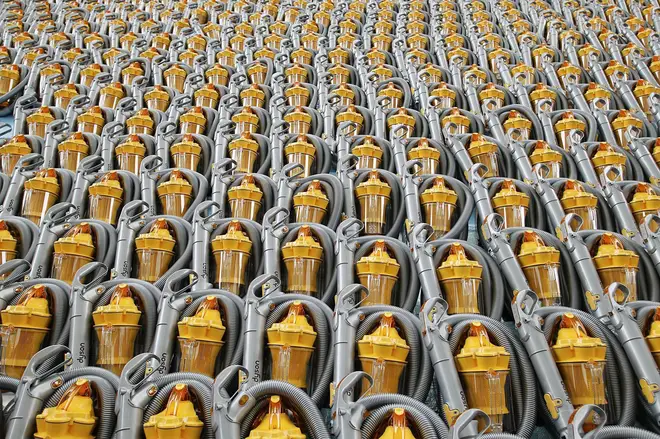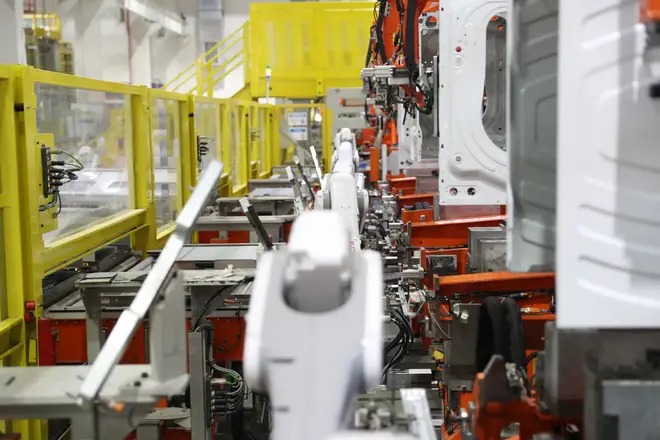
Nick Ferrari 7am - 10am
1 July 2021, 12:53

New consumer laws forcing companies to make it easier to repair white goods and TVs come into force from today.
The fresh legislation is aimed at companies who create products which intentionally break or fault after a certain time or usage.
White goods and televisions will be cheaper to run and last longer as a result of the new energy efficiency rules to tackle "premature obsolescence" - a short lifespan deliberately built into an appliance by manufacturers which leads to unnecessary and costly replacements for the consumer.
But what do the new laws mean for customers? How much will it save them in the long run?

There is now a legal requirement for manufacturers to make spare parts available to consumers for the first time - a new legal 'right to repair' - so that electrical appliances can be fixed easily.
It means anybody buying home goods in shops or online can rest assured that if anything breaks outside of their warranty that spare parts will be available for them to get the appliance repaired.
White goods and televisions will be cheaper to run and last longer as a result of the new energy efficiency rules, with the rules are designed to extend the lifespan of products by up to 10 years.
In the long run, this could save individual consumers thousands of pounds and prevent appliances ending up on the scrap heap sooner than they should.
Which? consumer rights spokesman Adam French said: "Too often electrical items end up in landfill because they are either too costly or difficult to fix, so these new rules requiring manufacturers to make spare parts more widely available are a step in the right direction and should ensure products last longer and help reduce electrical waste.
"As a next step, we want the Government to extend these rules to cover more appliances, ensure the parts are available throughout the lifespan of each product and are easily affordable."
Minister of State for Energy Anne-Marie Trevelyan said: "The tougher standards coming in today will ensure more of our electrical goods can be fixed rather than have to be thrown away when they stop working, putting more money back in the pockets of consumers, as we build back greener."

As products last longer, the number which end up being thrown away before will likely slow and reduce, meaning fewer replacements need to be manufactured.
Another aim of the legislation is to have a significant impact on the carbon footprint of manufacturers, with 1.5 million tonnes of electrical waste generated in the UK every year expected to dramatically reduce.
Climate Change Minister Lord Callanan said: "We can all play our part in ending our contribution to climate change, even when we're choosing a new electrical appliance.
"Our reforms are helping consumers make more informed decisions about how eco-friendly one smart TV or dishwasher is over another, helping us reduce our carbon footprint."
Some experts have warned about the dangers of encouraging customers to carry out difficult repair jobs themselves, not only risking breaking the product altogether but also electric shocks and electrical fires.
Martyn Allen, Technical Director at Electrical Safety First, warned consumers against tackling complex electrical repairs themselves.
He said: "Poor repair work can lead to an increased risk of fire or electric shock. With many appliances being complex in their design and powered by mains electricity, it is important that a competent professional carries out the work.
"The Government must also ensure that safety is at the heart of its sustainability strategy. A network of competent repairers approved by the manufacturer must be introduced to ensure repair work is carried out to a satisfactory standard so products remain safe to use."